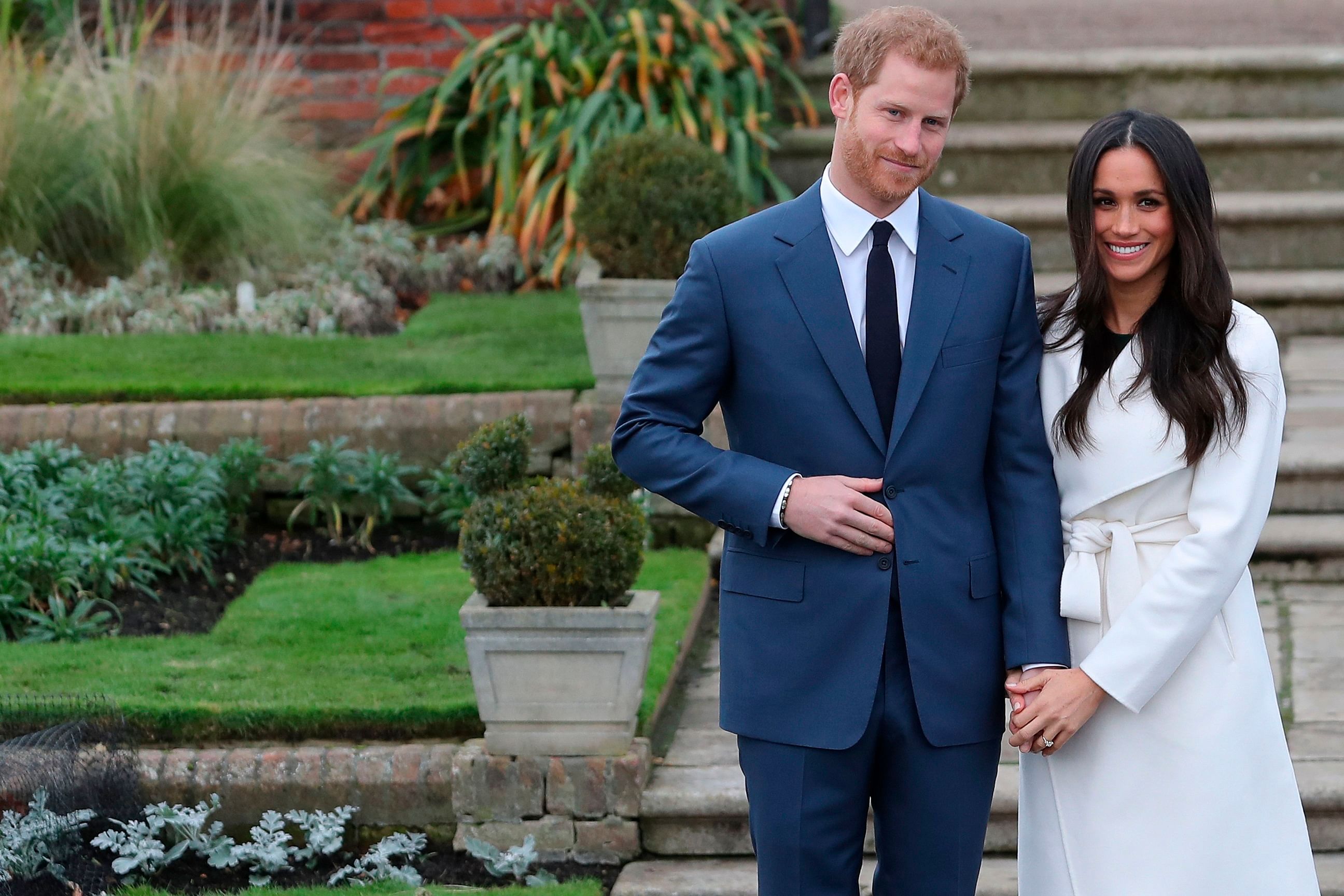Buckingham Palace announced on Monday the engagement of Prince Harry to United States actress Meghan Markle, a union combining United Kingdom royalty and American show business. News of the impending marriage, which has set off an international media storm, highlights the continuing global fascination with the British monarchy, which has been boosted in recent years by Harry, 33, and his brother, Prince William, 35.
More than two decades on from the royal family's high-profile problems in the 1990s, including the divorce of Prince Charles and Princess Diana (Harry's father and mother respectively), Queen Elizabeth II and her immediate family have now largely recovered from the worst troubles of her reign as the longest-serving UK monarch. And it is Harry and William who have helped power the ruling clan's popularity ratings in recent years.
Aside from the Queen and her husband, Prince Philip, a YouGov poll earlier this year showed that William is regarded as having made the strongest contribution to the royal family with 78 per cent approval rating, followed by Harry (73 per cent), and William's wife, Kate (73 per cent). The popularity of Harry, who is fifth in line to the throne, is now likely to be bolstered by his marriage to Markle.
The US actress and humanitarian campaigner is likely to make her mark with much of the UK public, unlike the last US citizen who married a UK royal. The relationship between Wallis Simpson (like Markle, a divorcee) and King Edward VIII ultimately led to the 1936 abdication crisis.
Popular support for the newly engaged couple is likely to be especially intense next spring, when their high-profile wedding takes place. It will give the monarchy a new surge of energy, especially coinciding with the birth - expected in April - of the third child of William and Kate.
Moreover, given the parallels between Diana and Markle, it is possible that she could become very popular, in the UK and internationally, in her own right. Harry said on Monday that his mother and his fiancee "would be as thick as thieves" (indicating they have much in common) and Markle will now give up her career as an actress to focus on royal duties, and wider humanitarian campaigning, in a way that may prove comparable with Diana in the 1980s and 1990s.

The renewed popular appeal of the royals has been buttressed by a modernised monarchy, with many of the UK populace believing it has changed for the better. Key recent reforms include the 2013 Succession to the Crown Act, which applies to people born after Oct 28, 2011. This legislation ended the rule of male primogeniture on the throne, which means girls now born to the royal family have equal rights with boys in the succession to the throne. Previously, daughters could inherit the throne only if there were no living sons. This system means two-year-old Princess Charlotte - as William and Kate's daughter - is ahead of Harry in the line of succession.
Moreover, the 2013 Act also ended the prohibition on Elizabeth's successors marrying a Catholic, which can be traced back to the reign of Henry VIII, when the king broke with the Roman Catholic Church to divorce his first wife, Catherine, to marry Anne Boleyn. Harry's engagement to Markle, who attended a Catholic school in California and is of mixed race, is only the latest chapter in this transformation process that brings it into line with that of wider changes in UK society at large.
Correspondingly, polls tend to show that less than a quarter of the UK population want a republic, with many people believing that it is better to have a non-divisive, non-political head of state. This factor may become even more important in the future, given that the nation appears to potentially become increasingly divided on geographic lines and the increased pressure for independence in Scotland.
On the face of it, therefore, the monarchy seems in good stead to prosper in the post-Elizabeth II period. The Queen, now 91, might choose to abdicate, and has already stepped back from some duties.
But unlike Harry and William, their father, Charles (the immediate heir to the throne), does not share their popularity. In the YouGov poll earlier this year, Charles and second wife Camilla trailed well behind the Queen, Philip, Harry and William on 36 per cent and 18per cent popularity respectively.
The poll also found only a third of the UK populace believe Charles "has been beneficial for the royal family". This is down by nearly two-thirds compared with four years ago, underlining that a rockier road may lie ahead for the monarchy once the Queen dies.
Charles, at 69, is already at an age when many people are retired, and is the longest-waiting and oldest heir to the throne in UK history. Indeed, some surveys show that a significant body of the UK public would prefer the monarchy to skip a generation to William upon the Queen's passing. However, in practice, it is very unlikely that this will happen. Charles appears to be looking forward to becoming king, and visible preparations are being made for a transition of power.
Charles earlier this month stood in for the Queen to lay the head of state's wreath at the Cenotaph on Remembrance Sunday. They jointly chaired the last Commonwealth heads of government summit.
Taken overall, the royal wedding announcement will boost the popularity of Harry and the wider ruling clan. However, significant uncertainties remain about the post-Elizabeth II period, especially given popular sentiment towards Charles, and this means the monarchy could yet face a rockier road ahead once she dies.
• The writer is an associate at the LSE Ideas think-tank at the London School of Economics.
